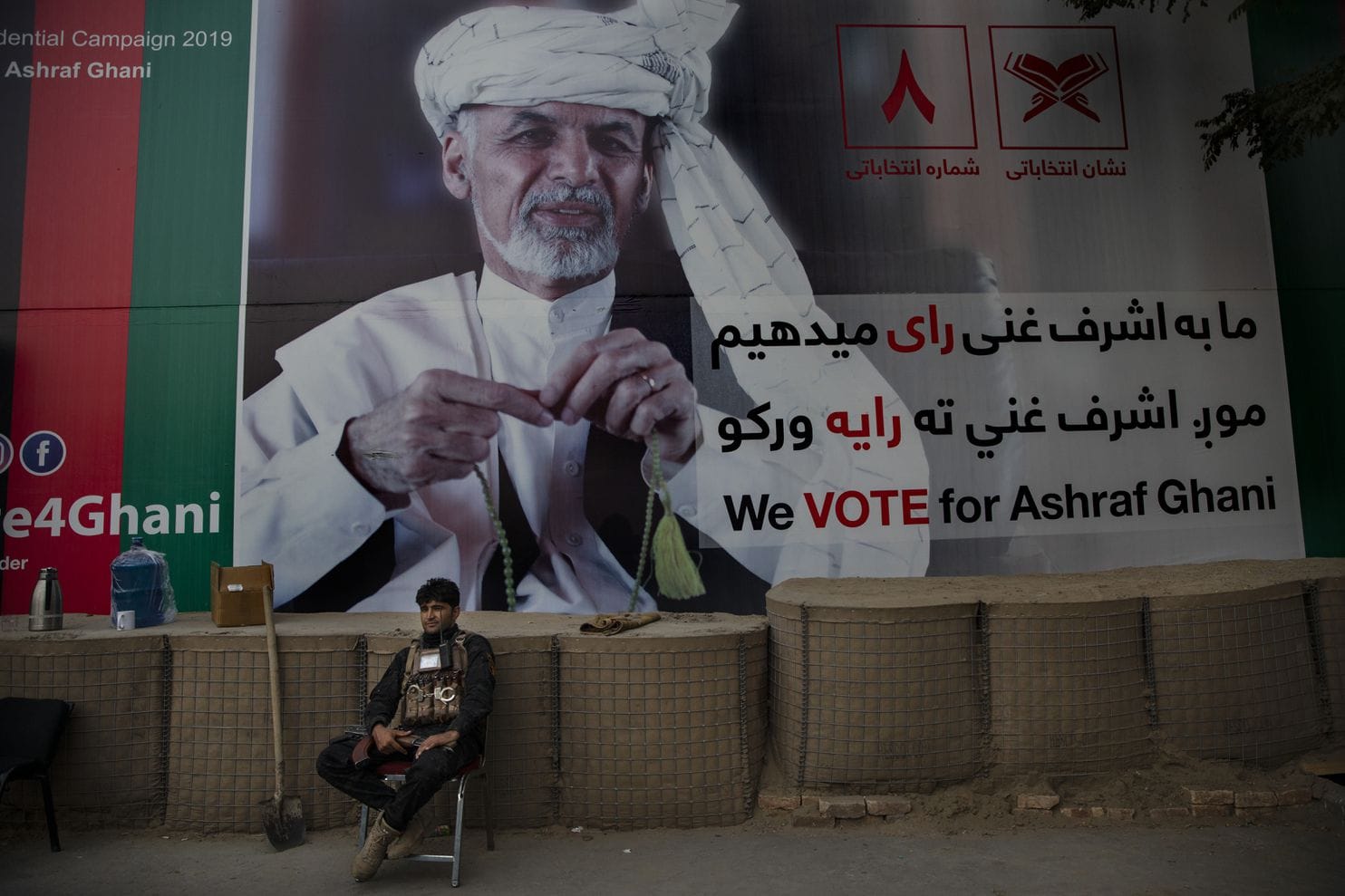
President Ashraf Ghani is seeking a second term in Afghanistan’s presidential election scheduled for September 28. But with just two days to go, it is still not certain that the election will ultimately be held.
Why the uncertainty?
Sections of the Afghan political class believe it is meaningless to hold elections before a peace deal is concluded with the Taliban. The Taliban have denounced the election, violence has increased in the last few weeks, and fear of bombings and suicide attacks may keep voters indoors.
Also, the elections of both 2009 and 2014 were mired in allegations of fraud, and questions will likely be raised on this election as well. As in the past, the results will likely be contested, and the exercise will be divisive, the critics say.
In an interview to the Associated Press, former President Hamid Karzai likened holding an election now to “asking a heart patient to run a marathon”. Karzai, who remains an influential voice in his country, has called for cancellation of the election and resumption of talks with the Taliban — if not between the United States and the Taliban, which President Donald Trump called off this month, then between the Afghan people and the Taliban.
On Wednesday, the head of Afghanistan’s Independent Election Commission (IEC) Hawa Alam Nuristani said the IEC was “fully ready” to conduct election on Saturday, and asked all eligible Afghans to cast their votes. There are 9.6 million voters on the rolls in a population of about 35 million.
This will be Afghanistan’s fourth presidential election since 2004, when the current Constitution came into force. Elections have always been held with US financial assistance; ominously last week, the US withdrew $100 million in aid for Afghanistan’s anti-corruption body, saying it was “incapable of being a partner”.
So who wants the election?
President Ashraf Ghani, who was excluded from the US-Taliban talks on the latter’s say-so, has pushed forcefully for the election to be held. The Taliban say they don’t recognise the Afghan government because it is a US puppet. A section of Afghan opinion believes that the proposed US-Taliban deal — which was primarily about the withdrawal of US troops in return for the Taliban agreeing to not let the al-Qaeda and ISIS establish themselves in the country — would have given the upper hand to the Taliban and destroyed hard-won gains of the nearly two-decade-long process of democratisation, which has brought certain freedoms and the rights to Afghans, including to its minority populations. The Taliban have given no indication that they believe in elections, and have been clear that they want power — or at least a share in power — without having to ask for votes.
When Zalmay Khalilzad, the US Special Representative for Afghanistan Reconciliation, announced this month that the deal with the Taliban now required only Trump’s green light, it appeared that the next step would be the setting up of an interim government in which the Taliban would play a big role. The understanding seemed to be that this interim government would thereafter work out further steps, including a ceasefire and talks between the Taliban and the Afghan people. It carried the implication that the election scheduled for September 28 would not be held.
The cancellation of the talks by Trump changed the situation. Ghani and his running mate for vice-president, Abdullah Saleh, have long argued that “intra-Afghan talks” should be held only after a new government is elected, that they should be between the Taliban and the representatives of the Afghan people, and that the Taliban should call a ceasefire before such talks.
And who’s running against Ghani?
Two of the 18 candidates who filed nominations have since suspended their campaign, one of them in favour of Ghani.
Among those who remain, the best known and strongest candidate is Abdullah Abdullah, a Pashtun-Tajik who was once adviser to Ahmad Shah Massoud, the leader of the Northern Alliance who was killed by al-Qaeda two days before the 9/11 attacks. Abdullah, who became the first foreign minister of Afghanistan soon after the US invasion of 2001, is deputy leader in Ghani’s government, designated as Chief Executive.
Abdullah came in second behind President Hamid Karzai in the 2009 election, and was deadlocked with Ghani after a second round run-off in 2015. With neither Abdullah nor Ghani willing to give in, then US Secretary of State John Kerry worked for months to cobble together a power-sharing deal. Abdullah’s party is called National Coalition of Afghanistan.
Then there is Gulbuddin Hekmatyar, the Pashtun leader of the Hezb-e-Islami. He is a former warlord and an ISI-trained, CIA-funded mujahideen commander who played a leading role in the anti-Soviet insurgency, and in the violence that tore Afghanistan apart as mujahideen factions fought each other for power for six years after the Red Army exited. In 2001, he based himself in Pakistan from where he orchestrated armed attacks on the Afghan government, until his return in 2016 after a peace agreement with Ghani’s government.
How has the campaign been?
There has been very little open campaigning due to the intense violence of the last few weeks — the Taliban first tried to grab as much territory as they could in the run-up to what seemed like a deal in the bag with the Americans; they were then angry that the talks were cancelled and the elections were happening. Dozens have been killed in Taliban suicide attacks over the last 10 days. For security reasons, Ghani has campaigned mostly via videoconferencing, and sought a mandate to strengthen his hands in any future talks with the Taliban.
Recent Queries
-

what is section of IPC 234??
6 year(s) ago- priya


